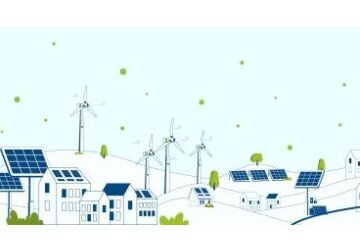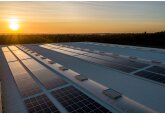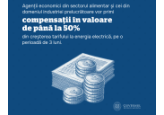
The Ministry of Energy presented to local authorities the concept of creating energy communities in Moldova
According to the Ministry, it was presented during an information session with the participation of government representatives in the territories, heads of territorial administrations, and representatives of local authorities. During the meeting, it was confirmed to the participants that any energy end-user can become a member of an energy community: individuals, homeowners' associations, non-profit organizations, small and medium-sized enterprises or local authorities. “The main goal of energy communities is to promote energy autonomy through their own energy production at much more favorable prices, which will contribute significantly to the competitiveness of the economy and the development of new opportunities and jobs,” said Carolina Novac, Secretary of State at the Ministry of Energy, at the beginning of the meeting. Renewable energy communities are autonomous entities made up of local members who cooperate in the production, consumption and distribution of renewable energy, she said. Their main goal is to bring economic, social and environmental benefits to society, while reducing energy costs and promoting sustainable development. The rights of those who are part of an energy community include: production, consumption, storage, supply and sale of renewable energy; non-discriminatory access to energy markets; and distribution of the energy produced to community members. Obligations include compliance with legal requirements, fair participation in the costs of the energy system, and notification to the National Agency for Energy Regulation of changes in status. For members, energy communities mean lower energy costs through locally produced renewable energy and the ability to directly control consumption and decision-making. At the same time, for communities, the development of local renewable energy production centers stimulates the local economy and creates jobs. In terms of energy security, energy communities increase resilience to crisis situations and, by effectively managing energy consumption, contribute to reducing the burden on national energy networks. According to the Ministry of Energy, the development of energy communities in Moldova is backed with financial support from international development partners. Among them is USAID Moldova, which provides assistance under the Moldova Energy Security Project (MESA) to develop renewable energy communities by removing existing barriers, proposing optimal solutions and implementing a pilot program that helps conduct technical studies, legal advice and monitoring the impact of energy community development. UNDP Moldova recently launched a call for proposals to select 2 NGOs to pilot the first renewable energy communities to support local initiatives aimed at improving energy management and energy sustainability at the local level. To this end, grants of $100 thousand each will be offered. The German Energy Agency (DENA) also offers support in strengthening local authorities in the process of establishing energy communities in Moldova, capacity building of municipalities, and will provide technical and regulatory advice to stakeholders. Thus, 8 localities in the country will benefit from individual concepts for energy communities and local authorities will be supported in identifying instruments for financing technical equipment. At the same time, INTERREG Danube Region offers financial assistance to create the necessary conditions in the process of developing energy communities in the Danube Region, promoting the transition to renewable energy sources and community energy initiatives. The Ministry of Energy said it will continue to support local authorities in the development of these communities by offering technical advice, legislative support and identifying the necessary sources of funding, thus reaffirming its commitment to promoting a sustainable and efficient energy system through the implementation of energy transition policies and the development of renewable energy sources. // 21.01.2025 – InfoMarket.







